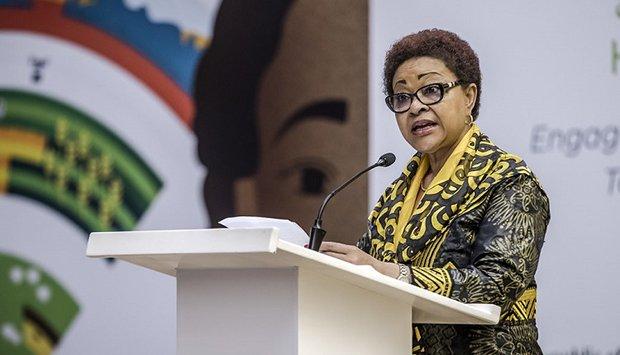Africa-Press – Eswatini. The African continent spends at least US$50 billion a year on importing the food it can produce, African Union (AU) Commissioner Josefa Sacko said Wednesday in Addis Ababa (Ethiopia).
The AU Commissioner made this statement at the event in a virtual format promoted by the representatives of France and Italy at the United Nations Agencies in Rome (Italy) which served to discuss the possibility of creating an initiative by the African Union and the European Union to support the production and use of plant proteins in 15 AU Member States.
According to the diplomat, this money can be saved to support local production and increase the income of producers, thus achieving food self-sufficiency and reducing dependence on food imports.
Josefa Sacko said that the spirit and content of the African position are aligned in a way for agricultural transformation in Africa, as articulated in the Africa Comprehensive Agricultural Development Program (CAADP), which is expected to transform its agriculture to achieve multiple goals. .
“Poverty reduction by supporting smallholder farmers to transform from subsistence farmers to commercial farmers, small farms can be profitable if well supported and with sustainable market opportunities for their products,” he maintained.
He also underlined that the agricultural sector has great potential to create jobs for millions of unemployed young people, using a value chain both in primary production and in post-agricultural activities (transport, processing and marketing).
Regarding vegetable proteins, Josefa Sacko considered essential in most African diets, especially beans, cowpeas, chickpeas, soybeans, peanuts, among others.
He made it known that these products are nutritious, having Africa’s common position at the UN Food Systems Summit determined that one of the ways to change “the game is to promote the cultivation and consumption of traditional and indigenous nutritious foods”.
As for Sub-Saharan Africa, he stressed that these countries are not on track to meet their development goal of ending all forms of hunger and malnutrition by 2030 and the goals of the Malabo-2014 declaration.
According to the diplomat, hunger in this continent’s partner is increasing in all regions and almost 20 percent of the continent’s population is undernourished, the highest in the world, as a result of climate change and Covid-19, which took 30 to 40 years to millions of people into poverty.
Josefa Sacko made it known that “our third biennial review report presented by the Ethiopian Prime Minister to African Heads of State during their summit that ended days ago indicates that only one country – Kenya – is on the right track to achieve the objective of ending hunger by 2025”, he lamented.
For More News And Analysis About Eswatini Follow Africa-Press







